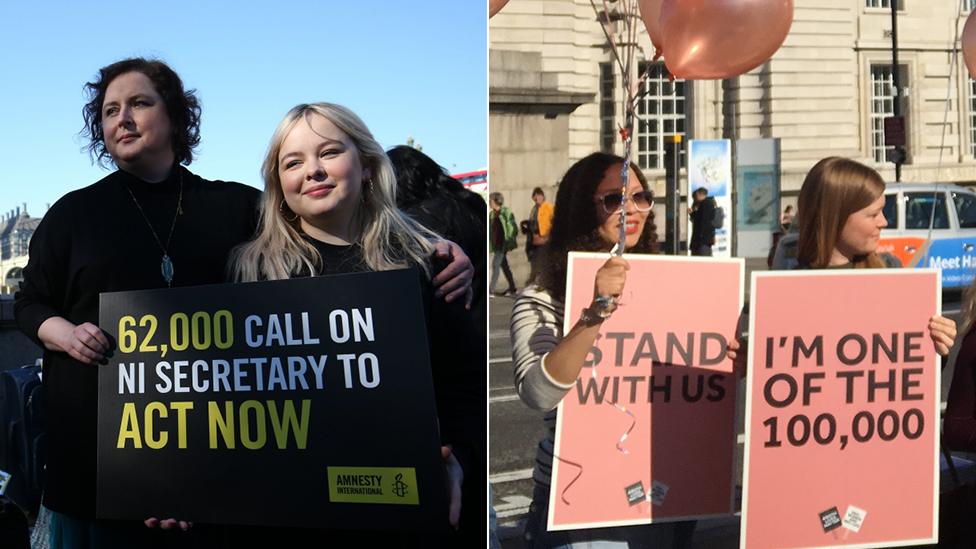Plan to combat gender inequality 'at every stage of life'
- Published

The government is announcing a "road map" aimed at tackling inequality faced by women from school to retirement.
Women and Equalities Minister Penny Mordaunt said women take an "economic hit" at each life stage and are "more likely to end up financially fragile".
She wants to look at barriers to equality including employment rights and workplace sexual harassment.
She also said abortion rules in Northern Ireland were "incompatible with a person's human rights".
Unlike other parts of the UK, the 1967 Abortion Act does not extend to Northern Ireland, and a termination is only permitted if a woman's life is at risk or if there is a risk of permanent and serious damage to her mental or physical health.
Ms Mordaunt said the issue was devolved, but added that she expected the UK government to act following an expected court ruling on the subject.
"If government did not act, Parliament would," she added. "I think paucity of care that women have endured in Northern Ireland is the most appalling thing and it must change."
Classroom to career
Speaking to BBC Radio 4, she said women, on average, enter the workplace with higher qualifications and "worked very hard, but earn less and save less".
The road map sets out "eight key issues" including gender imbalances in certain industries and occupations and attitudes in schools.
"What this does is actually track a woman throughout the course of her life and at each stage of that life, the hit that she takes, usually the economic hit, which means that she's more likely to end up financially fragile, with fewer choices than the average person in society," Ms Mordaunt said.
"Women are 50% more likely to be in low pay and trapped in low pay for decades."
The minister said a consultation on sexual harassment in the workplace would be launched next week - and would include proposals on making employers responsible when a member of staff was harassed by another employee.
She also said she wanted to end paternity leave discrimination, make a better childcare offer, ensure pension pots were taken into account in divorces and introduce employment rights for carers.
The minister acknowledged that "many have asked for paid leave for carers" adding: "The reason why these things haven't emerged is because we need more pressure from the Cabinet Office."
'Little tweaks'
The CEO of the Chartered Management Institute, Ann Francke, said the road map was "ambitious, comprehensive and collaborative", and "well-executed, it is a potential game changer".
Caroline Waters, deputy chairwoman of the Equality and Human Rights Commission, said gender inequality in Britain was "deeply entrenched" and there could be no "quick fixes".
"We urge concerted action across government to address all the barriers that continue to hold women back from achieving their full potential."
But Sarah Green, co-director of End Violence Against Women, said the proposals were "little tweaks when what is needed is quite a big cultural shift still in our workplaces".
"We need to do something fundamental as shifting the responsibility for preventing sexual harassment at work fundamentally from the individual employee to the employer."
- Published26 February 2019

- Published7 June 2018

- Published5 February 2019
